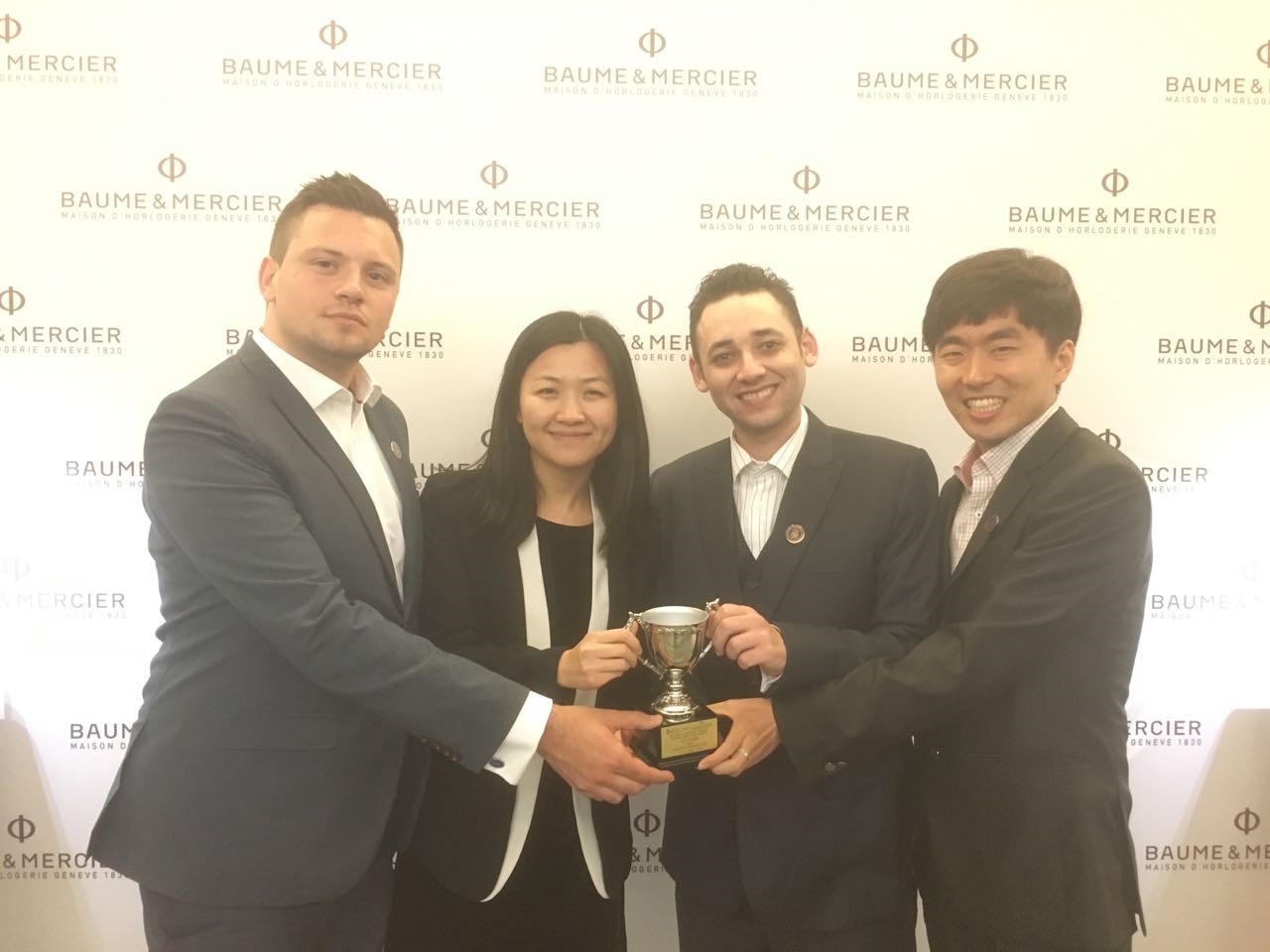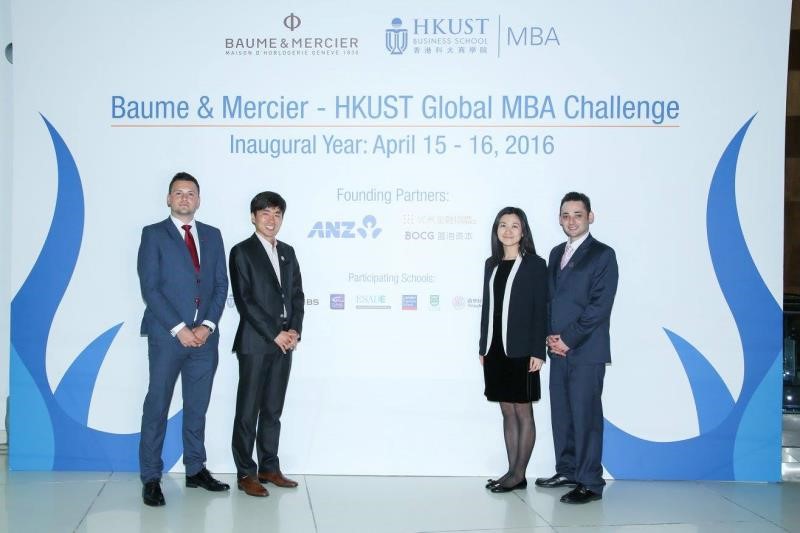Daniel Cowen, GMBA Class of 2017
In mid-April, four GMBA students found ourselves in Hong Kong, invited to attend the inaugural Baume & Mercier Business Case Competition at Hong Kong University of Science and Technology. This competition, organised by the students themselves, brought together teams from across Chinese mainland and Hong Kong, Europe and the USA, 40 MBA students altogether to compete for cash prizes while grappling with real business problems.

Tsinghua team members Daniel Cowen, Wendy Wang, Mike Rosenthal, and Roy In pose with their coveted Negotiation Round trophy, now on display in Tsinghua SEM's Shunde Room 116.
Having been the only team selected from a Beijing MBA program, Wendy Wang, Roy In, Mike Rosenthal and I were all proud to be representing the SEM. We had our sights mainly set on getting to know other MBA students – and of course, in a spirit of friendly competition, doing better than CEIBS, the only other Chinese mainland business school present. What struck us first was the real diversity of the other MBA programs; the committee at HKUST had chosen teams based on background, business experience and language, and it was fascinating to meet peers from all over the world, the majority of whom were also getting their business education outside of their home countries and, in many cases, home continents.
The competition itself was centred around Baume & Mercier, a Swiss watchmaking company with a rich history, mainly focused on the lower end of the luxury watch market. Despite its best efforts, the Hong Kong-based team had been unable to achieve the iconic status and business success of Rolex and others, particularly in the Chinese market. Baume & Mercier’s regional CEO and head of marketing were both heavily involved in preparing materials for the competition and acted as judges, along with HKUST professors and alumni.

GMBA teammates commemorate their participation in the inaugural HKUST Global MBA Challenge and their successful performance together.
The competition was divided into three rounds, with a main business case round, which we had a few days to prepare for, a flash case round, which we had one night to prepare for, and a negotiation competition, for which teams were given no preparatory materials. Holed up in the Holiday Inn close to HKUST’s beautiful campus on the bay, many teams were gathered in the lobby overnight, preparing their pitches for the main case round the next day. Finishing our pitches around 3:00 am each night, we would see teams from London Business School and UCLA get up to start working on their slides just as we completed ours, everyone taking a different approach to deal with the jet lag or lack thereof.
We were pleased with the accounting we gave of ourselves in the competition, steadily improving our pitches as time passed and as presentation nerves wore off. We presented confidently as a team and benefited greatly from having Wendy on our team, who represented precisely the kind of target customer Baume & Mercier would desperately like to attract in China. Our feedback after the competition indicated that we had given the marketing team at B&M genuine food for thought and that they would be implementing some of our ideas in the near future.

GMBA teammates commemorate their participation in the inaugural HKUST Global MBA Challenge and their successful performance together.
The three-day competition culminated in the final dinner and awards ceremony, during which the winning teams from each round of the competition were announced. Huge rounds of applause and tremendous praise were offered to the HKUST MBA committee and the student volunteers, who put their own time and effort into making the competition an enormous success. Tsinghua SEM was announced as the winner of the negotiation round, validating the pride we had taken in our team’s shared culminating performance, and we were rewarded with cash (yay) and a trophy (now in Shunde Room 116). It was also noteworthy that our head-to-head opponents from CUHK also scored well in the challenge, meaning that not only did we out-negotiate other teams, but we perhaps out-cooperated them as well. From this fantastic experience, we would highly recommend Tsinghua students to involve themselves in future business case competitions and to branch out and explore similar competitions around the world.